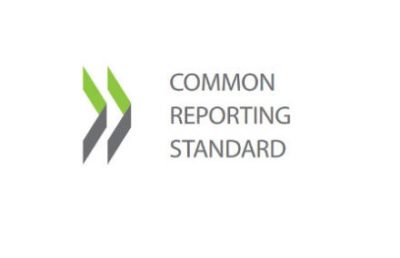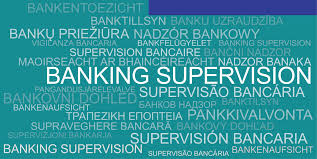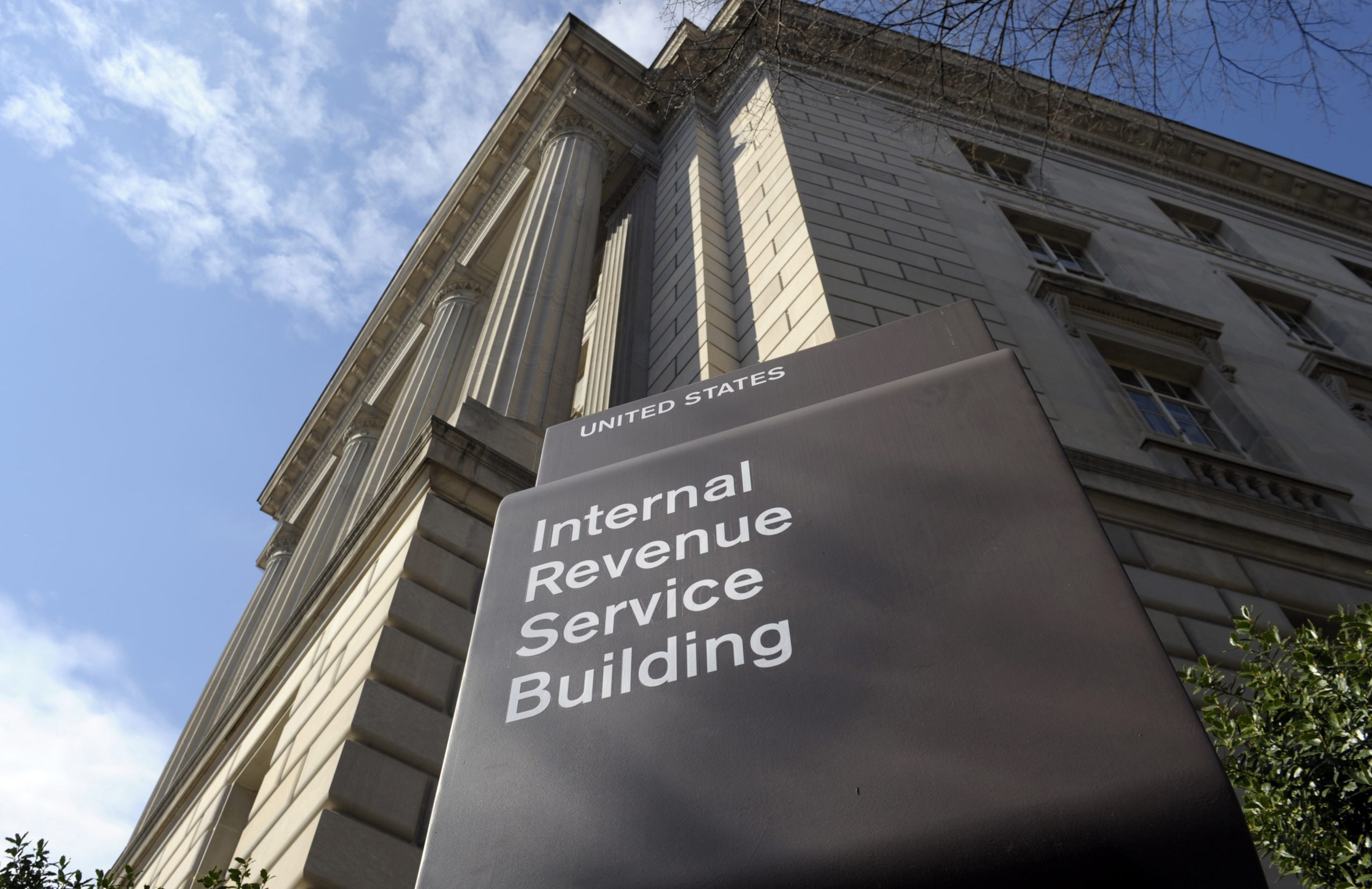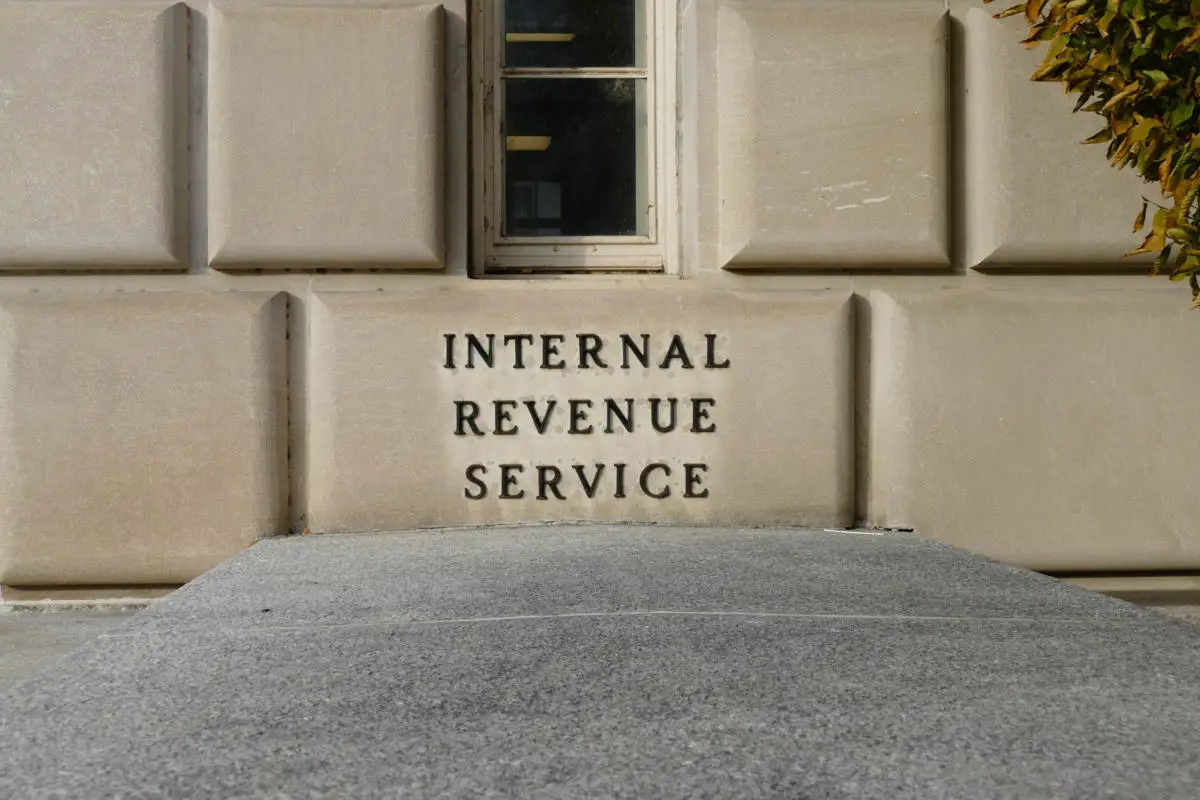In this 26 page post, I’ll review each of the top international bank license jurisdictions in 2023. There have been many changes to the industry since I last wrote on this topic in 2020. Here’s everything you need to know about the international bank license industry in 2023.
Note that this is an article about international bank licensing and building an offshore bank. That is different from a review of the offshore banking industry, which would be a summary of where you might open an offshore account.
For example, most would argue that Hong Kong and Switzerland are the top offshore banking jurisdictions… the best place for an individual to open an account with a big bank. I’d disagree, but that’s an article for another day.
However, it would be nearly impossible for someone to set up a new bank in Hong Kong or Switzerland. In this post, I consider those jurisdictions where you can apply for a new international banking license or purchase an existing offshore bank license without a massive amount of red tape and hundreds of millions in capital.
NOTE: I do write about Switzerland below, but that is for what is called a mini bank license and not a full banking charter. It’s more like a money transmitter license with a few extra service capabilities.
Table of Contents
- History of the International Banking Industry
- International Bank License Defined
- Types of Offshore or International Bank Licenses
- Benefits of Forming an International or Offshore Bank
- Factors to Consider in Choosing an International Bank License Jurisdiction
- International Bank License Jurisdictions in 2023
- Puerto Rico
- Bermuda
- British Virgin Islands
- Gibraltar
- St. Lucia
- Dominica
- Cayman Islands
- Belize
- Panama
- St. Kitts & Nevis
- Dominican Republic
- Switzerland
- Luxembourg
- Seychelles
- Vanuatu, Comoros, and Gambia
- The Future of International Banking
- Conclusion
While you can scroll down to a particular jurisdiction of interest, I think you’ll benefit by having a read through the first few sections. The international bank license industry is very different from the domestic banking industry. Even the most seasoned banking professional coming from a big bank background will benefit from a review of the small international bank license world.
History of the International Banking Industry
The offshore banking industry refers to a sector within the global financial services industry that focuses on providing financial services, primarily banking, in jurisdictions outside of where clients are primarily domiciled or conduct their business. This industry is often associated with jurisdictions known as tax havens, which offer favorable tax and secrecy benefits to foreign individuals and businesses.
Key characteristics of the offshore banking industry include:
- Location: Offshore banks are located outside of the depositor’s home country. Common locations include the Cayman Islands, Switzerland, Luxembourg, and various small island nations in the Caribbean and the Pacific.
- Privacy: Many offshore banking jurisdictions have laws in place that ensure the confidentiality of the identities of the account holders and the transactions made.
- Tax Benefits: Offshore banking centers are often characterized by low or zero tax on deposits and income earned. This makes them attractive to individuals and corporations looking to reduce their overall tax liability.
- Ease of Access to Funds: Offshore banks usually provide easy access to deposits, not only in the whole world but also in multiple currencies.
- Asset Protection: Offshore banks are often used for asset protection, separating assets from the local economic and political situation.
- Investment Opportunities: Offshore banks often offer access to politically and economically stable jurisdictions. This can be an advantage for those who reside in areas where there is a risk of political turmoil who might be at risk of having their assets seized or frozen.
However, the offshore banking industry has faced increasing scrutiny and regulation from international bodies over the last few decades, due to its association with tax evasion, money laundering, and illicit activities. Initiatives like the Foreign Account Tax Compliance Act (FATCA) in the US, and the Automatic Exchange of Information (AEOI) at the international level, have aimed to increase transparency and cooperation between jurisdictions to combat these issues.
And it’s FATCA and AEOI that have driven so many to set up banks in the US territory of Puerto Rico. Because the island of Puerto Rico is a US territory, FATCA does not apply. Because the United States has not signed on to the AEOI, and rather relies on its existing network of treaties, many international persons hold their money in international banks licensed in Puerto Rico.
International Bank License Defined
An international bank license is a legal permit granted by a regulatory authority or central bank of a jurisdiction, allowing a banking institution to engage in banking activities with non-residents and carry out business in foreign currencies. International bank licenses are typically granted to banks that operate in offshore banking centers, and these banks are sometimes referred to as offshore banks, although this term can have a broader meaning.
The main difference between an international bank license and a domestic/general banking license lies in the type of clientele they serve and the currencies they handle. Domestic banks primarily serve residents of their jurisdiction and deal mostly in the local currency. They can offer a broad range of services, such as taking deposits, offering loans, and other forms of credit.
In contrast, banks with an international license often operate in a different jurisdiction from their clients, deal with multiple currencies, and offer specialized services tailored towards an international clientele. These services can include cross border payments, wires, remittances, foreign payroll, credit and debit cards, wealth management, specialized corporate services, tax planning, and other forms of financial and investment advice. They typically do not conduct business with residents of the country where they are licensed, or they are limited in how they can do so.
Many countries issue international bank licenses. Some popular jurisdictions known for issuing such licenses include (this is just a summary, the detailed list is below):
- Cayman Islands: Known as one of the world’s leading offshore financial centers, the Cayman Islands offers two types of offshore banking licenses: Category A and Category B, which have different permissions and restrictions.
- Switzerland: Historically famous for its private banking services, Switzerland provides licenses for banks that wish to offer services to international clients.
- Luxembourg: This European country is a hub for private banking, asset management, and investment fund activities.
- Belize: Belize is known for its relatively easy and cost-effective process of obtaining an international banking license.
- Isle of Man: This self-governing British Crown dependency offers offshore banking services to international clients.
- Panama: Panama has a long history of providing offshore banking services, and it issues a General License allowing the bank to conduct both local and international business.
- Vanuatu: This Pacific island nation offers offshore banking licenses with a quick and cheap setup process… and you get what you pay for.
Each of these jurisdictions has its own specific requirements for obtaining an international bank license, and the benefits vary. These can include low or zero taxation, legal advantages, confidentiality, and access to a stable political and economic environment. However, due to increased international efforts to combat money laundering and tax evasion, the regulations governing offshore banking are changing and becoming more stringent.
Types of Offshore or International Bank Licenses
The term “offshore bank” broadly refers to any bank located outside the country of residence of the depositor. These banks can be categorized based on the services they provide, their clientele, and the legal and regulatory frameworks they operate under. Here are some of the main types of offshore banks:
- Private Banks: These cater to high net worth individuals, offering personalized financial and banking services. This can include wealth management, tax planning, and estate planning. Private banks are often associated with banking secrecy and privacy, although recent regulatory changes have increased transparency.
- Retail Banks: These offer similar services to domestic retail banks, such as savings and current accounts, credit cards, and personal loans, but they operate in an offshore jurisdiction.
- Commercial Banks: Commercial offshore banks provide services to businesses, such as business loans, commercial mortgages, and other credit products. They also offer other services like treasury management, trade finance, and foreign exchange transactions.
- Investment Banks: Offshore investment banks help businesses and high net worth individuals to raise capital through securities offerings. They also provide advisory services for mergers and acquisitions and facilitate securities trading and asset management.
- Captive Banks: These are wholly owned by a single corporation or entity and are set up to provide financial services to the parent company and its affiliates. These banks may open accounts and transact only with those listed in their license. They are not permitted to open accounts for the general public.
- International Business Corporations (IBCs): These are private corporations that offer banking services. They are often used by individuals and businesses for financial planning and investment purposes. They typically apply for a money transmitter license, an EMI permit, or some other non-bank license.
- Shell Banks: These are banks without a physical presence in any country. They are often associated with money laundering and other illicit activities, and many jurisdictions have restrictions or prohibitions on dealing with shell banks.
Different jurisdictions have different licensing and regulatory requirements for these types of banks, and they offer different levels of protection, tax efficiency, and confidentiality. Also, the services an international bank can provide are typically limited by the regulatory authority, So, you must be approved for each and every service you wish to offer… and prove you have the appropriate compliance systems to provide that service in a compliant manner.
Benefits of Forming an International or Offshore Bank
Forming and operating an international or offshore bank can provide several benefits to the operator, including:
- Tax Efficiency: Offshore jurisdictions often offer lower tax rates, which can reduce the overall tax burden on profits and capital gains. This is especially true for non-US investors, bank owners, and customers. This is because the US taxes its citizens on their worldwide income where most countries do not tax foreign source profits or gains.
- Diversification: Offshore banking allows institutions to diversify their holdings geographically and by currency. This can provide a hedge against local economic downturns, currency depreciation, and political instability.
- Confidentiality: Many offshore jurisdictions offer privacy protections, which can help protect sensitive financial information. However, it’s important to note that these protections have been reduced in recent years due to international efforts to combat tax evasion and money laundering. Puerto Rico does offer privacy because the US has not signed on to most automatic exchange of information agreements.
- Access to International Markets: International banks can provide access to emerging markets and other investment opportunities not available domestically.
- Asset Protection: Offshore banking can offer a degree of protection against potential threats such as lawsuits, economic crises, or political instability in the home country.
- Regulatory Flexibility: Some offshore jurisdictions may offer more relaxed regulations in certain areas compared to onshore banking centers. For example, a bank in Puerto Rico is not subject to FDIC oversight and thus has more regulatory flexibility than a traditional US bank.
The typical revenue sources for an international or offshore bank can include:
- Interest Income: This is the interest earned on loans made to clients and is typically the primary revenue source for any bank.
- Fees and Commissions: These can come from a wide variety of services, such as fund management, wealth management, transaction fees, and account maintenance fees.
- Foreign Exchange Transactions: Banks can earn revenue from foreign exchange transactions, both from trading currencies on their own account and from facilitating transactions for clients.
- Investment Income: This can include revenue from investments in securities, derivatives, and other financial instruments.
- Advisory Services: Many international banks offer financial and investment advisory services to their clients, which can provide a significant source of revenue.
It’s important to note that while offshore banking can provide benefits, it also comes with risks, including regulatory, reputational, and operational risks. Furthermore, international efforts to combat tax evasion and money laundering have increased transparency requirements and scrutiny of offshore financial centers, which can impact their attractiveness and operations.
Factors to Consider in Choosing an International Bank License Jurisdiction
Choosing the right jurisdiction for an offshore or international bank involves several important considerations. Here are some of the main factors:
- Regulatory Environment: Different jurisdictions have different banking regulations, and it’s important to find one that aligns with your needs and provides a secure, stable environment. This includes considerations of how well regulated the banking sector is, the efficiency of the regulatory bodies, and the jurisdiction’s cooperation with international financial authorities.
- US Compliance: If you set up a bank in the US territory of Puerto Rico, or you utilize a correspondent bank in the United States, you must follow all US regulations. Do you want to do business in US dollars and can your clientele pass US scrutiny?
- Taxation: One of the key attractions of offshore banking is the potential for tax efficiency. Some jurisdictions offer low or zero tax rates on income, capital gains, and inheritance. However, you must consider the tax implications in your home country and any tax treaties in place.
- Privacy Laws: Different jurisdictions offer different levels of privacy protection. Privacy laws will affect the confidentiality of your information and the degree to which it might be shared with international organizations or foreign governments.
- Political and Economic Stability: The stability of the jurisdiction is a crucial consideration. A stable political and economic environment ensures the safety of your funds and smooth banking operations.
- Reputation: The reputation of the jurisdiction can impact the perception of your bank and its operations. Some offshore jurisdictions are associated with illicit activities, which can lead to reputational risk.
- Legal System: The legal system and its efficiency can impact your bank’s operations. This includes how easy it is to enforce contracts, the protection of property rights, and the independence of the judiciary.
- Banking Infrastructure: The jurisdiction should have a well-established banking infrastructure. This includes modern banking systems, professional services support (legal, accounting, etc.), and good communication networks.
- Ease of Doing Business: Consider how easy or difficult it is to set up and operate a business in the jurisdiction. This includes the process for obtaining a banking license, bureaucratic efficiency, and any restrictions on foreign businesses.
- International Agreements: The jurisdiction’s participation in international agreements can affect information sharing and tax obligations. These can include agreements for the exchange of tax information, anti-money laundering (AML) measures, and agreements to implement the Common Reporting Standard (CRS).
- Costs: Consider the costs associated with setting up and maintaining the offshore bank. These can include licensing fees, capital requirements, and operational costs.
Before establishing an offshore or international bank, it’s important to understand your target market and your business objectives. I suggest you start with deciding how close you want to be to US regulators. Just remember that avoiding US oversight means that you can’t have a US correspondent bank and can’t do business in US dollars…and of course, you can’t set up your international bank in Puerto Rico.
International Bank License Jurisdictions in 2023
Here is my list of the top international bank license jurisdictions for 2023. The purpose of this section is to convey my thoughts on each of these options and to give you ideas when selecting the best offshore banking country.
It is not meant as an exhaustive summary of the process to set up a bank in each of these countries. If it were, this article would never end. You can reach me at info@banklicense.pro for specifics and the costs to set up a new bank or purchase an existing bank license in any of these jurisdictions.
Also, this list is not in any particular order. Each bank license jurisdiction has its positives and negatives. So, I am just trying to cover each in turn as they came to me while writing this post.
Puerto Rico
The US territory of Puerto Rico has dominated the international bank license industry since 2015. While other countries have one to five operating international banks, Puerto Rico has about 60, with many applications pending.
The reasons for this are simple:
- The relative ease of securing correspondent banking relationships compared to non-US international jurisdictions (like St. Lucia, for example).
- Prior to 2024 (yes, this is a forward looking statement, see below), the lowest capital and filing fees of any quality jurisdiction.
- Because Puerto Rico is a US territory, banks on the island can join the US banking system, hold dollars, and apply for Fedwire through the Federal Reserve.
- US tax laws generally do not apply in a territory. Thus, Puerto Rico can set its own tax rate. The bottom line is that an international bank in Puerto Rico will pay only 4% in tax, with no withholding tax or tax on dividends when distributions are paid out to an offshore holding company.
- Because the United States has not signed on to the European Union’s automatic exchange of information treaties, they do not apply in Puerto Rico. This provides a level of privacy and protection to non-US depositors and shareholders.
- Because FATCA does not apply to international banks in a US territory, the cost of compliance and reporting is reduced.
For these and other reasons, the international banking industry in Puerto Rico has grown quickly… some would say too quickly. It has forced regulators to crack down on non-compliant banks and push to increase capital requirements.
This has also caused regulators to limit the number of licenses they issue each year. There are far more applicants than available licenses and only the best applicants will be approved.
And, as a result, the cost of buying an operating bank or an existing license has increased dramatically. In most cases, a basic operating bank (that’s not in trouble with regulators) will sell for $5 million. Likewise, a license (Permit to Operate) will be valued at $5 million. If the bank is profitable, the value of the book of business will be added to these prices. And, if the bank had Fedwire, the asking price would be $30 million for a bank operating at break-even.
The $5 million value comes from two components:
- Time to market of 24 months, and
- The guarantee of success.
A new license application will require at least 12 months before it is reviewed and then 6 months to be approved, assuming all goes well. You will then receive your Permit to Organize and you’ll need 6 to 12 months to build out the business and convert that Permit to Organize into a Permit to Operate. Therefore, the best case scenario for a new license is 24 months time to market.
The above assumes you’re the best of the applicants. When you buy a bank, if you can pass due diligence, and you qualify to own a bank in Puerto Rico, then you will be approved to purchase. When you apply for a new license, you’re competing with other applicants, all of whom are presumably well qualified. When you purchase a bank, you eliminate the competition.
Therefore, a buyer of a small bank in Puerto Rico will need $5 million for the purchase price plus $5.3 million paid in capital and the CD. This must be in cash and a Proof of Funds is required. See below how I got to $5.3m in capital below.
Capital Requirements
At the time of this writing, the capital required for an international bank in Puerto Rico is $5 million with a path to reach $10 million in a few years. This is expected to change to a starting requirement of $10 million in January 2023.
Existing banks will have 5 years to transition to this new capital requirement. If you purchase a bank, you will have this time to increase capital. If you apply for a new license, you must have $10 million of paid-in capital on day one.
In addition, banks currently require a CD of $300,000. This will likely increase to $2.5m.
Next, the application fee might increase from $5,000 to $1 million (quite a bump).
Most experts in the field expect some of these increases to pass, but not all. I will update this post when we have certainty in these fees. But, the bottom line is that existing banks will have an advantage over new applicants.
Another change for international banks in Puerto Rico for 2023 is the requirement of an annual compliance audit and risk assessment. These were previously required every 4 years and are now mandatory every year… a great profit boon for audit firms, no doubt.
I see these changes as major improvements to the international banking laws of Puerto Rico. There have been way too many undercapitalized banks on the island incapable of executing their business model. Higher capital requirements will eliminate the poor performers and improve the overall reputation of the jurisdiction.
Process to Start a Bank in Puerto Rico
Here’s a brief on how to start a bank in Puerto Rico in 10 steps:
- Apply for a Permit to Organize as an IFE in Puerto Rico. This is the first step in the process and it allows you to establish a legal entity that can operate as a bank in Puerto Rico. Timeframe 12 to 18 months.
- Build out your office space in a building approved by regulators. Your office space must be secure and meet the requirements of the Puerto Rico Office of the Commissioner of Financial Institutions.
- Hire a minimum of 4 employees, including a qualified compliance officer. You will need to hire a team of experienced professionals in Puerto Rico to help you run your bank. This includes a compliance officer who will be responsible for ensuring that your bank complies with all applicable regulations.
- Purchase, implement and test your core banking system. This is the software that will be used to process transactions and manage your bank’s accounts. Timeline 1 to 6 months.
- Negotiate a correspondent account. You might apply for a Fedwire account in year 2 or 3 depending on many factors.
- Prepare your compliance manuals and training materials. You will need to develop a comprehensive set of compliance manuals and training materials for your employees.
- Finalize your website and marketing collateral. You will need to create a website and marketing materials to promote your bank, which regulators must approve of.
- Apply for and receive your Swift code. A Swift code is a unique identifier that is used to identify financial institutions in international payments.
- Go through an audit and receive your Permit to Operate. Once you have completed all of the necessary steps, you will need to go through an audit by the Puerto Rico Office of the Commissioner of Financial Institutions. If the audit is successful, you will be issued a Permit to Operate.
- Take the business live and begin onboarding clients. Once you have your Permit to Operate, you can begin onboarding clients and offering banking services.
The US standard to cover startup expenses from Permit to Organize through to the Permit to Operate is $1 million. Depending on your core system, you might cut this down to $500,000. Systems can run $25,000 to $1.5 million, with many many values in between. So, the core system is also the core of your startup budget.
This $1 million value is used throughout the United States and written in the laws of various States as a percentage of initial paid in capital. For example, North Carolina requires a startup budget of 10% of initial capital. In the case of a new applicant, minimum paid-in capital is $10 million, which gives us a startup budget of $1 million. See § 53C-3-4(a)(4) which is commonly 10% as of 2023.
Other Sources
For information on the process to start a bank in Puerto Rico, see Start a Bank in Puerto Rico in 10 Steps (written in 2020).
For more information on the planned capital requirements for international banks in Puerto Rico, see New International Banking Regulations for Puerto Rico in 2024.
For information on the larger international banks in Puerto Rico, see International Banks in Puerto Rico with Fedwire.
For an article on banks in Puerto Rico that have run into trouble, see Puerto Rico Cracks Down on International Banks: A Look at the Recent Closures.
If you are familiar with US domestic bank licenses, this post might help clarify the differences between Puerto Rico and the United States: US Banking License vs. Puerto Rico International Banking License.
Bermuda
I believe that the up and coming offshore bank licensing jurisdiction is Bermuda. If you don’t want to be in the United States, then consider Bermuda. This is the best option for very well capitalized and professional applicants.
Once Coinbase set up in Bermuda, the island gained quite a bit of cache in the crypto and fintech space. And, with the opening of Jewel, a crypto-friendly bank run from Silicon Valley, the island’s reputation is only going to grow.
Yes, it’s a bit early to proclaim Bermuda as the next Puerto Rico. There is only one international bank on the island compared to 60 on Puerto Rico. But, the offshore banking industry is changing quickly and looking forward is necessary.
Forward looking guesses aside, here are the requirements to set up a bank in Bermuda.
You must obtain a license from the Bermuda Monetary Authority (BMA). The BMA is the financial regulatory authority in Bermuda and is responsible for ensuring that all banks operating in the country are sound and solvent.
The requirements for obtaining an international banking license in Bermuda are as follows:
- The bank must be incorporated in Bermuda.
- The bank must have a paid-up capital of at least USD $10 million.
- The bank must have $1 million to cover startup expenses (so as to not deplete its paid-up capital during the startup phase).
- The bank must have a sound business plan.
- The bank must appoint a qualified management team.
- The bank must comply with all applicable laws and regulations.
For more on this topic, see Bermuda to Become the Top International Bank License in 2024
For information on setting up a crypto exchange in Bermuda, see Bermuda is the Best Jurisdiction for a Crypto Exchange or Digital Asset Business.
And for general country information, see Country Information – Bermuda and BVI.
British Virgin Islands
Another jurisdiction with great potential is the British Virgin Islands. This country has maintained a stellar reputation for decades and has a solid banking regulator with large players incorporated there, all be it as booking centers and not necessarily as operating international banks. Like Bermuda, BVI is an interesting option for a very well capitalized and high quality applicant.
Here’s what you need to know about about the British Virgin Islands:
The international banking industry in the British Virgin Islands (BVI) is limited but distinctive. With the territory’s stable political climate, favorable tax laws, and robust legal framework, the BVI offers an attractive environment for banking operations.
There is currently one bank, VP Bank, that specifically focuses on international business. As a globally active private bank, VP Bank primarily offers services in wealth management. This focus aligns with the territory’s reputation as a hub for global finance and a preferred jurisdiction for international business companies.
Beyond this, the territory also hosts large general banks that mainly function as transaction booking centers. They cater to a broad range of financial services, including retail, corporate, and investment banking. Notably, two of Puerto Rico’s largest banks, Banco Popular and First Bank, hold licenses in the BVI, signifying the jurisdiction’s strategic importance in the Caribbean banking landscape.
While the presence of international banks may be relatively limited in number, the BVI’s sophisticated legal system, pro-business environment, and strategic location continue to draw attention from financial institutions worldwide. Its growing reputation as a center for financial innovation further underscores the potential of BVI’s international banking industry.
Capital Requirements:
The following is a recitation of the law issued in 1990 and not accurate for a new applicant in 2023. But, because there has not been a new license issued in many years, this is the best place to start.
The capital requirements for an international bank license in the British Virgin Islands (BVI) vary depending on the type of license. For a Restricted Class I or Restricted Class II Banking Licence, the minimum paid up capital is US$1 million. For a General Banking Licence, the minimum paid up capital is US$2 million.
In addition to the minimum paid up capital, applicants for an international bank license in BVI must also meet the following requirements:
- Proven banking experience
- Physical presence in the BVI
- Meet the “fit and proper” criteria of the BVI Financial Services Commission (FSC)
The FSC will also require applicants to make a deposit or investment of an additional US$500,000. This is similar to the CD required in Puerto Rico.
Here are some additional resources that you may find helpful:
My expectation is that the capital requirement in the British Virgin Islands will be between $5m and $10 million based on the quality of the applicant and on what Puerto Rico does in 2024. BVI tends to follow Puerto Rico and Bermuda, but might be more aggressive.
Gibraltar
Another jurisdiction making inroads into the offshore banking industry is Gibraltar. With 9 total banks, and the recent addition of Xapo Bank, a very well funded international bank, Gibraltar is poised to become the Puerto Rico of Europe.
Gibraltar’s banking industry is a dynamic sector that caters to both domestic and international clients. It enjoys a robust regulatory environment under the Gibraltar Financial Services Commission (GFSC), which is committed to meeting international standards of financial regulation and supervision.
The banking sector in Gibraltar includes a mix of domestic banks serving local individuals and businesses, and international banks providing a range of services to global clients. Many of these banks are subsidiaries or branches of reputable banks from Europe, particularly the UK, reflecting Gibraltar’s historical and regulatory ties to the UK.
Gibraltar has adopted European Union banking directives and maintains a high standard of banking regulation. In addition, it has also adopted strict anti-money laundering measures and requires banks to maintain robust risk management systems, making it a respected banking jurisdiction.
Despite being a small jurisdiction, Gibraltar has positioned itself as an international finance center, offering services in banking, insurance, investment fund management, and fintech. The jurisdiction’s strong regulatory framework, strategic location at the gateway of the Mediterranean, and growing focus on financial innovation, particularly in the area of blockchain and cryptocurrency, continue to attract international banks and financial institutions.
Like Bermuda, Gibraltar is only open to the best capitalized, best run, and most compliant banking operators. Unlike Puerto Rico, this jurisdiction never went through a phase of allowing low budget banks to open… which is why Puerto Rico is busy cleaning up previous messes and why several Puerto Rico banks have closed or been sold in recent years.
The starting capital of a new bank is €5,000,000. However, you must also account for the European Regulations, which can push this amount up quickly. More specifically, a bank’s Minimum initial and ongoing capital requirement is the higher of €5,000,000 or the capital calculations set out in the Financial Services (Capital Requirements Directive IV) Regulations (CRD IV). If you want to get into the minutia, you can find links here: CRD IV AND CRR.
St. Lucia
For a pure offshore license on a budget, the only option is St. Lucia. This offshore bank license jurisdiction has a quality reputation and a bank licensed here will be able to get a lower level correspondent partner.
Below are the capital requirements. My recommendation for an application in St. Lucia is $2.5 million of paid-in capital and a $500,000 startup budget. This is based on experience while the information below is based on the minimum requirements of the law. See the government website.
To set up a bank in St. Lucia, you must first obtain a license from the Financial Services Regulatory Authority (FSRA). The FSRA is the financial regulatory authority in St. Lucia and is responsible for ensuring that all banks operating in the country are sound and solvent.
The requirements for obtaining a banking license in St. Lucia are as follows:
- The bank must be incorporated in St. Lucia.
- The bank must have a paid-up capital of at least USD $1 million for a Class A license or USD $250,000 for a Class B license.
- The bank must have a sound business plan.
- The bank must appoint a qualified management team.
- The bank must comply with all applicable laws and regulations.
Capital requirements
In addition to the license requirements, banks in St. Lucia are also subject to capital requirements. The capital requirements are designed to ensure that banks have sufficient funds to withstand financial shocks and to continue operating in the event of a crisis.
The capital requirements for banks in St. Lucia are as follows:
- Tier 1 capital must be at least 4% of risk-weighted assets.
- Total capital must be at least 6% of risk-weighted assets.
The FSRA may impose additional capital requirements on banks that are considered to be at a higher risk of financial distress.
NOTE: St. Lucia has not issued a new license in a few years. The most likely path is to apply for a new license and pass due diligence. Then you will be allowed to purchase an existing bank if the government won’t issue a new license.
You can download my PDF on International Bank Licenses from St. Lucia here.
Dominica
For years, Dominica was near the top of any list of offshore bank license jurisdictions. This island has always been the low cost leader with a capital requirement of only $1 million. I’ve written many articles over the years extolling the virtues of Dominica and comparing it to its neighbor, St. Lucia.
However, as of 2023, Dominica is useless as an international bank license jurisdiction. It has become a joke in the industry and the island to avoid at all costs.
Why? What’s happened to the offshore bank license industry in Dominica? Corruption, corruption and more corruption. As of 2023, Dominica is a scam banking jurisdiction. Here’s what you can expect if you apply for a bank license in Dominica:
You’ll spend a great deal of time and money to prepare a license package for Dominica. Then you’ll file it and wait for a response. Eventually, you will meet with regulators and other agencies.
They will ask for money to move your application along, promising you a license. Then you will go to the next agency and get the same treatment. Time and time again, you’ll be blocked until money is paid with no end in sight.
Needing to make a political donation, or even pay a bribe, might be the cost of doing business. But, in Dominica, they will keep this up until you simply go away. The government doesn’t want to issue any new licenses, but they do want money. So, they keep leading you on until the cash runs out.
Those of us in the industry know that Dominica has become a scam. And this is a great way for you, the individual or company seeking an international bank license, to figure out who to hire to set up your bank. If they are actively promoting Dominica, or recommending Dominica, then they are likely useless.
If they’re paying Google PPC to promote offshore bank licenses from Dominica, run far away from that company. If they tell you Dominica is great and all you need is $1 million in capital, know that they are a waste of time.
One last note: Even if you could get to the end of the pay line, which you can’t, a bank licensed with $1 million in capital you won’t be able to get a correspondent partner. I suggest you need $1 million in startup costs plus $5 to $10 million minimum paid-in capital to get anywhere in the industry.
For more information on an international bank license from Dominica, see Dominica Banking License (I wrote this in 2019 and it’s outdated. I have linked to it here for historical reference only).
Cayman Islands
The Cayman Islands invented the international bank licensing industry. They were the first and the best for many years. Then, in 2010, they lost their edge as the United States and others began to push back on privacy and protection.
The Cayman Islands has been in steady decline since FATCA (2010) and the rising costs of doing business on the islands. The costs of operating on Cayman have always been very high. But, as more and more regulations come in, these costs spiraled out of control.
Plus, regulators were so busy keeping the United States happy that they were not supporting their local businesses. Just when costs and risks were at their height, regulators demanded more and more audits.
These increased costs and uncertainty put many of the international banks on the Cayman Islands out of business. And, those that are hanging on, are having a hard time making a profit.
If you have a need for a license from Cayman, it is possible to apply. There’s been one license granted in the last few years. Also, comments on the amount of capital required is speculative because the most recent international banking law was issued in 2008 (see CMA website).
Just be ready for the fees payable in Cayman. Your license application filing fee will be $250,000 to $600,000 depending on various factors. Then your annual fee can be as high as $1 million. For more, see CMA Fees.
Considering the above, it’s easy to see why so many are moving to Puerto Rico. It is very rare for a new applicant, or a buyer, to want to set up in the Cayman Islands in 2023. For more on this topic, see The Decline of the Cayman Islands Offshore Banking Empire.
Belize
The international banking industry in Belize is a significant part of the country’s financial services sector. Belize is known for its attractive legislative framework for international banking, which offers financial privacy, tax benefits, and relatively low entry and operating costs. Belize’s international banking sector mainly serves non-residents, with activities including personal and corporate banking, asset management, and other financial services.
Belize operates a two-tier banking system, consisting of domestic banks, which primarily serve residents, and international banks, which cater mainly to non-residents. The Central Bank of Belize regulates both types of banks, with international banks governed by the International Banking Act.
In terms of regulatory requirements, international banks in Belize are subject to capital adequacy requirements, stringent anti-money laundering (AML) and combating the financing of terrorism (CFT) regulations, and periodic audits to ensure compliance with these and other standards. The minimum required capital under the law for an Unrestricted “A” Class international banking license is USD 3 million, while a Restricted “B” Class license requires USD 1 million. As with most countries, these numbers are outdated and have been modified by regulators in practice.
It’s worth stating once again that the international banking landscape globally, including in Belize, has been changing in response to increasing international pressure for greater transparency and stricter regulation. As a result, the banking industry in Belize has seen a shift towards stronger regulatory oversight and higher compliance standards. It appears that a new applicant will need $5 to $10 million in capital as many move to follow the lead from Bermuda.
There are currently three international banks licensed in Belize, down from six a few years ago. These are Caye International Bank, Belize Bank International, and Heritage International. For more information, see the Central Bank’s website.
NOTE: Caye International Bank is consistently ranked among the best offshore banks and international banks of the world. For more, see: Caye International Bank, which has been in business since 1996. Here’s an article with their thoughts on the future.
While it’s been many years since a new license was issued in Belize, it’s rumored that the current government is open to an application from a quality and well capitalized group. Belize would be an interesting option for a new international bank license applicant.
Panama
Panama was a leading jurisdiction for international banks in the early 2000s but has lost most of its luster since the Panama papers and since bending to US pressure. It is still a solid option for a banking group looking for an international banking license to operate a transaction booking center or for other reasons.
That is to say, only a bank licensed in a quality or top tier jurisdiction may apply for an international license from Panama. If you don’t already have a banking license, then you can’t open an international bank in Panama.
The requirements to apply for an international banking license in Panama, given the condition that only banks from reputable jurisdictions may apply, are summarized below:
- Application and Business Plan: The applicant must submit an application to the Superintendency of Banks in Panama (Superintendencia de Bancos de Panamá) with detailed information about the bank and its operations. The application must include a comprehensive business plan outlining the nature and scale of the planned banking activities.
- Existing Banking License: The applicant must hold an active banking license from a reputable (top tier) jurisdiction. This license should be in good standing and valid in its country of issuance.
- Financial Statements: The applicant must provide audited financial statements for the last three years from the existing bank. These should include a record of the bank’s performance and demonstrate its financial strength.
- Capital Requirements: The bank must demonstrate a minimum capital adequacy based on Panama’s banking laws. At the time of the last update, this amount was $10 million for an International Banking License.
- Good Standing Certificates: Certificates of Good Standing or their equivalent must be provided from the regulatory bodies in the jurisdiction where the bank is currently licensed.
- Management and Directors: Information about the management and directors, including their qualifications, experiences, and reputation, must be provided.
- Anti-Money Laundering Measures: The bank must demonstrate that it has robust anti-money laundering (AML) and combating the financing of terrorism (CFT) measures in place.
- Legal Documentation: Various legal documents must be provided, including the bank’s articles of incorporation and bylaws.
- Physical Presence: The bank should establish a physical presence in Panama, including local staff and offices.
- Approval: Finally, the Superintendency of Banks in Panama will review the application and, if it meets all the requirements and standards, the banking license will be approved.
This is a high-level summary, and the specific requirements may vary and evolve. If you are currently operating a domestic bank, we can assist you to set up an international bank licensed in Panama.
St. Kitts & Nevis
Saint Kitts and Nevis, located in the Caribbean, is known for its robust offshore financial services sector. The twin-island nation has established itself as an attractive destination for international banking, mainly due to its strong regulatory environment, political stability, and attractive fiscal conditions.
The international banking industry in St. Kitts and Nevis is regulated by the Financial Services Regulatory Commission (FSRC). The FSRC ensures that international banks adhere to a set of standards and regulations in line with global best practices, including compliance with anti-money laundering (AML) and combating the financing of terrorism (CFT) requirements.
There are only two international banks operating in the jurisdiction:
- St. Kitts-Nevis-Anguilla National Bank Limited (operated from St. Kitts)
- Bank of Nevis International Limited (BONI operated from Nevis)
It has been many years since a new license was granted on St. Kitts and Nevis. BONI was created when Bank of Nevis sold its license to do international business. So, now there is BONI and BON as unrelated banks.
Like Belize, it would be interesting to apply for an international license, especially from Nevis. I’ve met with regulators and government officials who have expressed interest in seeing a filing from a quality applicant.
Dominican Republic
The opportunity in the Dominican Republic is to purchase a general bank license and get permission from regulators to offer international business. You must focus on domestic business, but you may also be allowed to have a sizable international banking component.
It is likely that a domestic license in the Dominican Republic will cost $20 to $30 million. With this in mind, here is a summary of the banking industry in the Dominican Republic.
The banking industry in the Dominican Republic is an essential part of the nation’s economy, facilitating economic growth, promoting financial stability, and providing vital financial services to individuals and businesses.
The banking sector in the Dominican Republic is regulated by the Superintendency of Banks (Superintendencia de Bancos) under the Monetary and Financial Law. The regulatory framework aligns with international best practices and standards, ensuring the safety and soundness of the banking system.
The banking system in the Dominican Republic is composed of multiple domestic and international banks, offering a broad range of services, including retail banking, corporate banking, investment banking, asset management, and other financial services. The sector is characterized by a few large banks having a significant market share, followed by several medium and small-sized institutions.
One of the most prominent banks in the country is the Banco Popular Dominicano, which, along with Banco de Reservas and Banco BHD León, controls a substantial part of the banking market.
The Central Bank of the Dominican Republic (Banco Central de la República Dominicana) also plays a critical role in maintaining financial stability, controlling inflation, and implementing monetary policy.
The Dominican Republic has made significant strides in recent years to strengthen its banking industry’s regulatory framework, enhance transparency, and bolster anti-money laundering (AML) and combating the financing of terrorism (CFT) measures.
The Dominican Republic’s banking industry offers a few key types of banking licenses. These are regulated by the Monetary and Financial Law and supervised by the Superintendency of Banks (Superintendencia de Bancos). Here are some of the main types:
- Commercial Banks: These banks can engage in a broad range of activities, including taking deposits, providing loans, and offering other services such as wire transfers, payment processing, and foreign exchange. This license is generally referred to as the “multiple” license as it allows all manner of banking business.
- Savings and Loans Associations: These institutions primarily focus on accepting deposits and providing loans to their members, often offering favorable rates and terms compared to commercial banks.
- Mortgage Banks: These banks specialize in providing mortgage loans for the purchase, renovation, or construction of real estate.
- Development Banks: These are often government-backed institutions that provide financing for specific sectors or projects aimed at economic development, such as agriculture, manufacturing, or infrastructure.
- Credit Unions or Cooperatives: These member-owned institutions offer a range of banking services to their members, often in rural or underserved areas.
The specific requirements, regulations, and restrictions for each type of banking license vary and are stipulated in the Dominican Republic’s financial laws and regulations. It’s worth noting that all these institutions are required to comply with capital adequacy requirements, anti-money laundering (AML) and combating the financing of terrorism (CFT) regulations, and other regulatory standards.
Banco Multiple License
A “Banco Múltiple” or Multiple Bank in the Dominican Republic is a type of commercial bank that can offer a wide range of banking services in the Dominican Republic and abroad. The term “multiple” refers to the bank’s ability to provide various financial services, including but not limited to taking deposits, providing loans, offering credit cards, facilitating wire transfers, foreign exchange, and other related services.
This type of license is regulated by the Monetary and Financial Law and supervised by the Superintendency of Banks (Superintendencia de Bancos).
Here are the general and capital requirements for a banco multiple in the Dominican Republic:
- Requirements:
- The bank must be incorporated in the Dominican Republic.
- The bank must have a paid-up capital of at least USD $10 million.
- The bank must have a sound business plan.
- The bank must appoint a qualified management team.
- The bank must comply with all applicable laws and regulations.
- Capital requirements:
- Tier 1 capital must be at least 10% of risk-weighted assets.
- Total capital must be at least 12% of risk-weighted assets.
The capital requirements for banks in the Dominican Republic are set by the Superintendencia de Bancos de la República Dominicana (SBP), the financial regulatory authority in the Dominican Republic. The SBP has the power to adjust the capital requirements as needed to ensure that banks in the Dominican Republic are adequately capitalized.
In addition to the capital requirements, banks in the Dominican Republic are also subject to other regulatory requirements, such as liquidity requirements and risk management requirements.
As stated above, I estimate the purchase price of a banco multiple license in the Dominican Republic to be between $20 and $30 million. For more on the Dominican Republic, see: A Review of the Political History of the Dominican Republic.
Switzerland
Note that the following refers to the mini banking license or Fintech financial license available from Switzerland. While this is far from a full banking license, it does have its unique place in the industry.
It’s also possible to use an aged Swiss Trust to operate a financial services business from Switzerland. For more on this, see: Aged Swiss Trust for Global Financial Services Company. Again, this is not a banking license, but a good start in a top tier jurisdiction.
The Fintech or mini bank license allows institutions to accept public deposits up to a total value of CHF 100 million, provided these are not invested and no interest is paid on them. This opens up a regulated space for innovative financial companies, such as those operating in the digital and blockchain spaces, to operate without the full requirements of a traditional banking license.
The main features of the license are as follows:
Requirements:
- The applicant must have its registered office and conduct its business activities in Switzerland.
- The persons responsible for managing the fintech business must provide assurance of good reputation and guarantee proper business conduct.
- Business activities are governed by appropriate risk management and a solid internal control system (including compliance).
Capital Requirements:
- The required minimum capital is either 3% of the accepted public funds, but at least CHF 300,000.
Restrictions:
- The institution may accept public funds up to CHF 100 million.
- The accepted public funds may not be invested, and no interest may be paid on them. That is to say, you can’t pay interest to your depositors.
Please note that this is a simplified summary of the regulations and further requirements apply. I have included this here to give you an idea of what’s possible in Switzerland if you wanted to have a fintech in a top jurisdiction to support a bank license from a lesser country.
For more on this, see Switzerland is quickly becoming a Powerhouse in the Fintech Industry (written in 2019).
Luxembourg
Luxembourg, as one of the top financial centers in the European Union and indeed the world, has a highly developed banking industry that includes a significant number of international banks. It’s home to many global banks, private banks, and specialized financial institutions from all over the world.
The country’s strategic location at the heart of Europe, its multilingual and international workforce, and its strong regulatory environment have made it an attractive destination for international banking activities. In particular, Luxembourg is known for its expertise in areas such as wealth management, fund administration, and other cross-border financial services.
The banking sector in Luxembourg is regulated by the Commission de Surveillance du Secteur Financier (CSSF), which ensures compliance with local and European regulations. The requirements to obtain a banking license in Luxembourg are quite rigorous and include providing detailed information about the bank’s structure, activities, governance, and capital. As per EU requirements, the minimum initial capital requirement for a credit institution (including banks) is EUR 5 million plus the add-ons required by the specific jurisdiction you are operating from (see below).
In addition to these general requirements, banks must also comply with ongoing regulatory requirements, including capital adequacy, liquidity, risk management, anti-money laundering (AML) and combating the financing of terrorism (CFT) regulations, as well as other prudential and conduct of business rules.
It’s worth noting that Luxembourg is fully aligned with international efforts to increase transparency in financial services, and it has taken significant steps in recent years to improve its compliance with international standards.
The capital requirements to start a bank in Luxembourg are as follows:
- Subscribed and fully paid-up share capital: The minimum subscribed and fully paid-up share capital for a credit institution in Luxembourg is €8.7 million.
- Additional capital buffers: Credit institutions in Luxembourg may also be required to maintain additional capital buffers, such as the Global Systemically Important Institutions (G-SII) buffer and the Other Systemically Important Institutions (O-SII) buffer.
The capital requirements for banks in Luxembourg are set by the Commission de Surveillance du Secteur Financier (CSSF), the financial regulatory authority in Luxembourg. The CSSF has the power to adjust the capital requirements as needed to ensure that banks in Luxembourg are adequately capitalized.
In addition to the capital requirements, banks in Luxembourg are also subject to other regulatory requirements, such as liquidity requirements and risk management requirements.
Here are some of the factors that the CSSF will consider when determining the capital requirements for a new bank:
- The size and complexity of the proposed bank’s operations.
- The risks associated with the proposed bank’s activities.
- The bank’s management team and its experience in the banking industry.
- The bank’s financial strength and its ability to withstand financial shocks.
Seychelles
Seychelles is an archipelago nation located in the Indian Ocean off the eastern coast of Africa. Known for its stunning beaches, rich biodiversity, and vibrant culture, Seychelles has a relatively small, but increasingly diverse economy. Traditionally, the Seychellois economy has been dependent on tourism and fisheries, but over the last few decades, it has been expanding into the sectors of offshore business, banking, and financial services.
The banking industry in Seychelles, while not as large or as well-known as those in some other offshore centers, plays a significant role in the country’s economy. It comprises a mix of domestic banks serving the local economy and international banks catering to global clients. However, it’s worth noting that Seychelles is often regarded as a “banking jurisdiction of last resort.”
This is mainly because, in comparison to top-tier jurisdictions, Seychelles has less stringent regulatory requirements for obtaining an international bank license. Hence, entities that may struggle to secure a license elsewhere might find Seychelles a more feasible option. Similarly, if a bank aims to cater to clients who might struggle to access banking services elsewhere, such as those from countries with high levels of economic or political risk (like Russia), Seychelles could be an option.
EDITOR’S NOTE: Whenever you hear “less stringent regulatory requirements,” you can translate that to, good luck getting a correspondent banking partner.
There are currently 7 banks licensed in Seychelles. They are Absa Bank (Seychelles) Ltd, Mauritius Commercial Bank (Seychelles) Ltd., Bank of Baroda, Seychelles International Mercantile Banking Corporation (SIMBC) trading under the name “Nouvobanq,” Seychelles Commercial Bank (formerly Seychelles Savings Bank), Al Salam Bank Seychelles Limited, and Bank of Ceylon. Of these, two are operating as international banks and one is a booking center for a bank from India.
Note that the following is speculative because the last update to Seychelles banking license law was in 2004. Click here for the banking statute. The last update to fees was in 2010. Of these, one is operating an international bank and one as a booking center for a bank in India.
The requirements to obtain a bank license in Seychelles are relatively straightforward. Applicants should have a minimum paid-up capital of US$5 million (the law requires $2 million)), and they must meet certain corporate governance and risk management standards.
The capital requirements for banks in Seychelles are also relatively low. Commercial banks are required to maintain a minimum capital adequacy ratio of 10%, and investment banks are required to maintain a minimum capital adequacy ratio of 12%.
Here are some additional details about the Seychelles banking industry:
- The Central Bank of Seychelles (CBS) is the country’s banking regulator.
- The CBS has been working to strengthen the Seychelles’ anti-money laundering and terrorist financing controls in recent years to get off various black and gray lists.
- The Seychelles is a member of the Financial Action Task Force (FATF), an international body that sets standards for combating money laundering and terrorist financing.
- The Seychelles has been ranked as a “high-risk jurisdiction” by the FATF in the past, but it has made significant progress in improving its AML/CFT controls.
For an excellent article on the Seychelles banking industry, check out the Nomad Capitalist website.
Vanuatu, Comoros, and Gambia – a Warning
I include Vanuatu, Comeros, and Gambia on this list because I am asked about them frequently. But, they are here as a warning… definitely not as a recommendation for an international bank license jurisdiction.
Vanuatu is an island nation located in the South Pacific Ocean. Known for its stunning natural beauty, the country consists of an archipelago of around 83 small islands, some of which have active volcanoes. Vanuatu’s economy is largely based on small-scale agriculture, which provides a living for most of the rural population. The country also has a growing tourism industry thanks to its tropical climate, beautiful landscapes, and rich cultural heritage. Offshore banking and financial services have become important sectors, with Vanuatu providing favorable tax conditions and banking privacy. However, it is worth noting that recent international efforts towards financial transparency have affected the functioning of this sector. Today, it is an option to incorporate an offshore company, but not to operate an international bank.
Gambia, on the other hand, is the smallest country on mainland Africa, enveloped by Senegal except for its western coastline along the Atlantic Ocean. The Gambia River runs through the center of the country, which is characterized by diverse ecosystems around the central river and abundant wildlife in its numerous nature reserves and parks. The Gambian economy is dominated by farming, fishing, and tourism. In recent years, the government has invested in improving infrastructure and the legislative framework to promote investment and commercial activities. Though smaller compared to global offshore financial centers, The Gambia does have a growing banking sector that caters to local clients.
Then there is Comoros. Comoros is a small island nation located in the Indian Ocean, off the eastern coast of Africa. It is situated between northern Madagascar and northern Mozambique and consists of three main islands, namely Grande Comore, Mohéli, and Anjouan. There’s also a fourth island, Mayotte, which is claimed by Comoros but is still administered by France.
Comoros is one of the smallest and poorest countries in the world, with a population of around 850,000. The economy is largely based on subsistence agriculture, fishing, and remittances from overseas. Despite its economic challenges, the country is known for its biodiversity, including many endemic species.
These three countries, along with a few others, are the scourge of the international bank license industry. Yes, you’ll pay some money to a promoter and will receive a banking license. But, because there is no regulatory body of substance in these jurisdictions, and their reputations are poor, that license is useless.
- This is one of the reasons Puerto Rico is the market leader. They have the local regulator, OCIF, and then the US Federal Reserve of New York. Plus, banks in Puerto Rico follow US Federal Standards. Jurisdictions without a strong regulator, or no regulator as in the case of these three jurisdictions, put out a license that won’t be respected by potential correspondent partners.
If you want a colorful piece of paper for $50,000 then buy a bank license from Vanuatu, Comoros, or Gambia. But, if you want to be able to build a bank capable of operating on the international stage, look elsewhere.
The issue with Gambia, Comoros, and Vanuatu is that you won’t be able to get a correspondent banking partner with this license. No one will accept a bank license in these jurisdictions, so the license is useless.
These countries take advantage of those who have dreams of owning a bank but have nowhere near the required capital. They sell you a license that they know you won’t be able to use, which is why these are the worst scammers of the offshore bank license industry.
The bottom line is that setting up an international bank in 2023 is an expensive, complex, and capital intensive endeavor. Only very well funded groups will succeed. If you don’t have the capital to get into a quality jurisdiction, start somewhere else… such as an EMI license in the UK, an Aged Swiss Trust, a Mexican SOFOM, etc. There are many options of legitimate non-bank setups that will allow you to build the business and eventually convert to a full banking charter.
Here are a few other clear signs that the provider is a scam or a waste of time:
- If the website says, “ready-made licenses for sale,” run the other way. There are almost never ready made licenses in the banking industry (unlike in the offshore company formation business).
- Promises a quick turn around, that’s impossible in 2023. All transfers of ownership require regulatory approval.
- Tells you that no due diligence is required or you don’t need to prove the source of funds. This is never true and is a sure sign of a scam.
- If they’re promoting Dominica, they either don’t know what they are doing, they are out of date, or they’re taking a cut of the forthcoming bribes.
- Anyone promoting Vanuatu, Comeros or Gambia is most likely a scammer. You’ll never be able to make use of these licenses.
- Basically, if it’s easy to buy a bank, that means that the license is useless because there is no substantive regulator in that jurisdiction.
- If the provider offers many different services on their website, it means that they’re a marketing firm and (hopefully) will refer you to someone that knows what they’re doing… at twice the price had you found the subject matter expert on your own. Offshore bank licensing is very specialized and only someone that works in the field full time can keep up.
- If someone promises to get you a bank license for the minimum capital promised in the law, such as $550,000 in Puerto Rico, know that this is probably not true and they don’t know what they are doing. Most laws are outdated and regulators have significantly increased the capital requirement.
- If anyone tells you they have the “right connections” to get a banking license in a jurisdiction that typically doesn’t issue licenses, expect a scam and a never ending list of people asking for bribes until you go away (Dominica). They keep you on the hook with hope until you stop paying.
For more on this topic, see Scams in the Offshore Bank License Market
I’ld also like to mention that much of the information on the internet is out of date. It’s very important to keep up with changes and work with someone who is regularly in contact with regulators. For a post on this topic, see The Internet and ChatGBT are Wrong About International Bank Licenses in Puerto Rico.
The Future of International Banking
Looking forward, it’s reasonable to assume that the international bank license industry in 2024 and beyond will continue to evolve along the following lines:
- Regulation: Banks and financial institutions worldwide would likely be facing even stricter regulation and oversight. Regulatory bodies have been increasing their scrutiny on money laundering, terrorist financing, and other illicit financial activities. Transparency, regulatory compliance, and robust risk management would likely continue to be major focus areas.
- Technology and Digital Banking: The ongoing digital revolution in banking services would likely continue to evolve. More and more banks are expected to offer digital banking services, such as mobile apps, online banking platforms, and digital payment solutions. This trend could impact the licensing process as regulators adapt to oversee these new technologies and services.
- Competition and Consolidation: Due to increased competition, especially from fintech and big tech companies, traditional banks might look for strategies to stay competitive, including consolidating resources, merging with other institutions, or acquiring fintech companies.
- Customer-Centric Services: Banks are expected to continue enhancing their focus on customer-centric services. This includes personalized banking products and services, improved customer service channels, and leveraging data analytics to understand customer behavior and preferences.
- Sustainable and Socially Responsible Banking: With growing awareness of social and environmental issues, banks are expected to pay more attention to sustainability and social responsibility. This includes ethical investment, financing green initiatives, and supporting community development.
- Cybersecurity: With an increased digital footprint, banks would likely have to invest more in cybersecurity measures to protect customer data and prevent cyber attacks. Regulatory bodies around the world are also paying more attention to cybersecurity, which may affect the requirements for obtaining and maintaining a banking license.
- Artificial Intelligence (AI) and Automation: AI and automation technologies have the potential to dramatically transform banking operations, from customer service (e.g., chatbots) to risk management and fraud detection. Banks that can effectively leverage these technologies might gain a significant competitive advantage.
- Open Banking: Open banking, facilitated by APIs (Application Programming Interfaces), allows third-party developers to build applications and services around a financial institution. This trend, already strong in regions like Europe with PSD2 regulation, could increase competition and drive innovation in the banking industry.
- Blockchain and Cryptocurrencies: The rise of blockchain technology and cryptocurrencies could continue to have significant implications for the banking industry, potentially affecting everything from payment transactions to contract enforcement. This is a popular theme in Puerto Rico.
- Remote Workforce Management: The COVID-19 pandemic forced many businesses, including banks, to adopt remote working practices. Post pandemic, managing a remote workforce has become a standard part of operations for many banks, with implications for recruitment, management, and IT infrastructure.
- This is especially relevant to international banking, where you might have a few employees in your country of license and a much larger group in your home country/target market.
- Financial Inclusion: Banks may continue to seek ways to provide services to underbanked or unbanked populations. This includes not only providing access to basic financial services but also extending credit and providing tools for wealth management to these populations.
I also expect Puerto Rico to continue to dominate the industry. However, I also expect many of the early license holders to be forced out because they can’t keep up with the capital requirements. As they sell or close, larger players will enter the market which the early adopters proved to have potential. Look for Puerto Rico to mature quickly in the next 2 or 3 years.
Conclusion
I hope you’ve found this article on international bank licenses to be helpful. For more information, please contact me at info@banklicense.com. I will be happy to review your options and assist you to apply for a new license or acquire an existing bank in the appropriate jurisdiction.
In most cases, this process will start by preparing your business plan and financial model. For information on drafting a business plan for an international bank, see Business Plan for an Offshore Bank License. I wrote this with Puerto Rico in mind, but the contents and concepts are the same throughout the industry.




















